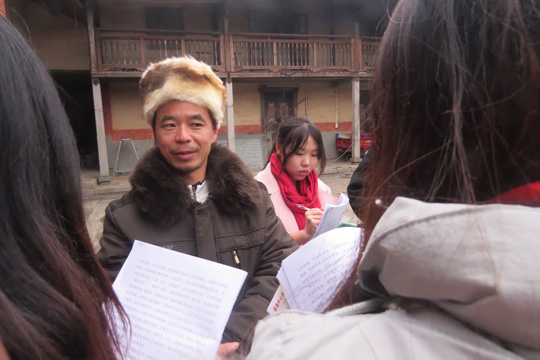

 |
|
Huang Liyong, a local man who returns to Dongda village five years ago, introduces his house. [Photo by Zhang Xiang/chinadaily.com.cn] |
For restoration of the Yanzhen tower has not been their only contribution. They have also refurbished Putian's old houses and its various niche mansions, especially in Dongda village, the "portal" of Putian.
Dongda village is today a maze of elegant buildings that thanks to the returnees' efforts are monuments to history.
Walking along the village's narrow but well-rendered concrete pavement, time seems to have stood still – there are hardly any crowds, and no bright lights flank the pathways. That mood is fitting, as the village actually watched the first group of local people bravely leave to work in Southeastern Asian countries like Singapore, Malaysia and Indonesia in the late 19th century, and then welcomed them home, with honor, in the 1920s.
They had earned buckets of gold and then traveled thousands of miles on their return voyages, full of excitement and anticipation, and carrying precious building materials like concrete, steel bars and ceramic tiles.
The Southeastern-Asian-style buildings that began to arise after their return are today Dongda's distinctive cultural landmarks.
Perhaps the most eye-catching of the new structures was the grand courtyard built by Yao Yusan, a courageous big brother who carved out the path to overseas work in 1892.
It was tough for Yao at first. He worked as a coolie in Malaysia, struggled to own a bike repair stall, then became a sales agent for a famous British bike brand. He finally felt that his career was gaining momentum, but the call of Putian was too strong.
The house that Yao built on his return in 1909 still looks stylish and new. Fittingly, it is now a museum, and not only holds dear the memories and refined traditions of Yao's family, but also showcases the deep blood-ties and connections of the many other Putian natives who sought a future overseas.